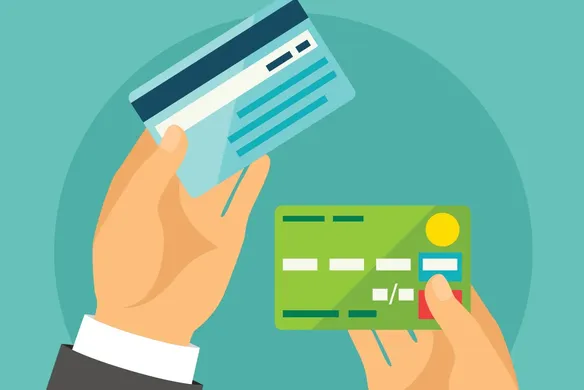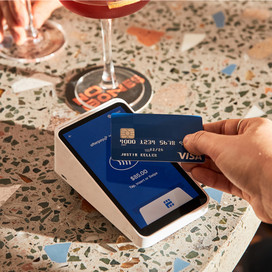Business loans and credit cards are just two popular ways that Aussie businesses manage their credit and cash flow needs. But which one is right for you?
To help you make a decision, we’ve broken down the benefits and drawbacks of using a credit card versus using a loan to fund your business expenses.
Business credit cards
Business credit cards are best suited to small or medium businesses that want a revolving line of credit and extra perks. From simple account management to fees, here are the pros and cons to consider when comparing these cards:
Pros
- Flexible repayments.
You can use your credit card to spend up to your approved credit limit. You’ll have to make minimum monthly repayments, but you can also pay as much as you want each month. When you pay your balance in full, you’ll pay no interest and can take advantage of interest-free days. In contrast, loans have a set repayment schedule with little flexibility.
- Account software.
Most business credit cards are linked to accounting and budget tracking software, making it easier to monitor and manage your costs.
- Additional cardholders.
A business credit card can be a useful way to manage employee costs. You can usually request up to 100 additional cardholders with your business credit card.
- Reward points.
Some business credit cards are linked to bank reward or frequent flyer programs, allowing you to earn points per $1 spent on eligible purchases. You can redeem points for business flights or rewards for your employees, or use them to cover costs on your balance.
Cons
- Higher interest rates.
Credit cards typically have higher interest rates than business loans. Interest rates can range between 10% and 22% p.a. If you plan on paying your balance in full each month, this won’t be an issue. However, you could rack up debt if you’re rolling your balance across from month to month.
- Annual fees.
Some cards charge $0 for the first year, but most business credit cards will end up charging high annual fees. You need to ensure that the value you get from the card (such as rewards and extra features) justifies this cost.
- Eligibility requirements.
Credit cards have strict eligibility requirements. You’ll need to have a good credit history and meet annual turnover requirements to receive approval.
Business loans
Business loans may be a better option if you need to fund upfront investments such as equipment or property, or if you’re an established business with a stable revenue and cash flow. You’ll access greater borrowing power, but you’ll need to meet strict eligibility requirements:
Pros
- More borrowing power.
While a credit card can help you manage your business’s smaller ongoing expenses, a loan may be better if you have a large, upfront expense in mind. This is because you can generally borrow more with a loan than you can with a credit card. Loan amounts typically range between $5,000 and $500,000 (or sometimes more).
- Lower interest rates.
Some loans can offer lower interest rates than business credit cards. Interest rates can start at 4% p.a. However, the rate you receive will depend on factors such as the size and age of your business, as well as your annual turnover, cash flow projects and the intended use of the loan.
- Repayments.
A business loan is fixed for a set term with regular repayments, which can help with budgeting. These terms generally range from three months to five years (although some have terms of up to 20 years), and you’ll need to repay your loan on time to avoid late payment and default fees. Some loans allow you to pay your loan off earlier without being charged any penalty rates, so you may want to factor this into your comparison.
- Different types of loans.
From fixed term business loans to business vehicle finance and equipment loans, you can compare a number of different loan types to suit your organisation’s financial needs.
Cons
- Strict application process.
You’ll generally need to demonstrate that you can meet a minimum monthly turnover and that you have an established trading history. This means that the application process can take longer than it would if you were applying for a credit card. You can find tips on applying for a loan on the Business Gov website.
- Not suitable for new businesses.
As mentioned, many lenders have minimum revenue and business age requirements, so you may have difficulty receiving approval if you don’t have an established business history. If you are a new business, you may need to include a detailed business plan as part of your application. Check out OnDeck’s guide to building a business credit profile to increase your chances of approval.
- You may need security.
Banks often require security as collateral to approve business loans.
Depending on your business needs, you may find that you want to use both a business credit card and a loan. You may use a card to manage your employees’ everyday spending, and apply for a loan to cover large expenses such as equipment or vehicle costs. As with any credit card or loan, it’s important that you compare your options, consider the eligibility requirements and create a repayment plan to ensure that you can make your line of credit work for you.
By Sally McMullen, Credit Cards Editor at finder.com.au
Remember, this article does not constitute financial advice – if you have questions about your business savings account, please consult a professional.
![]()











